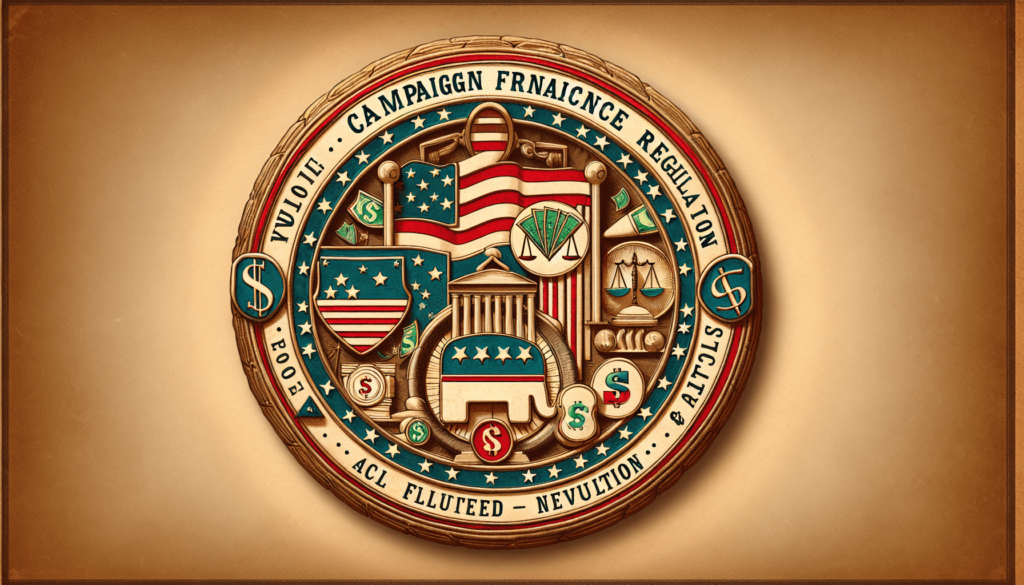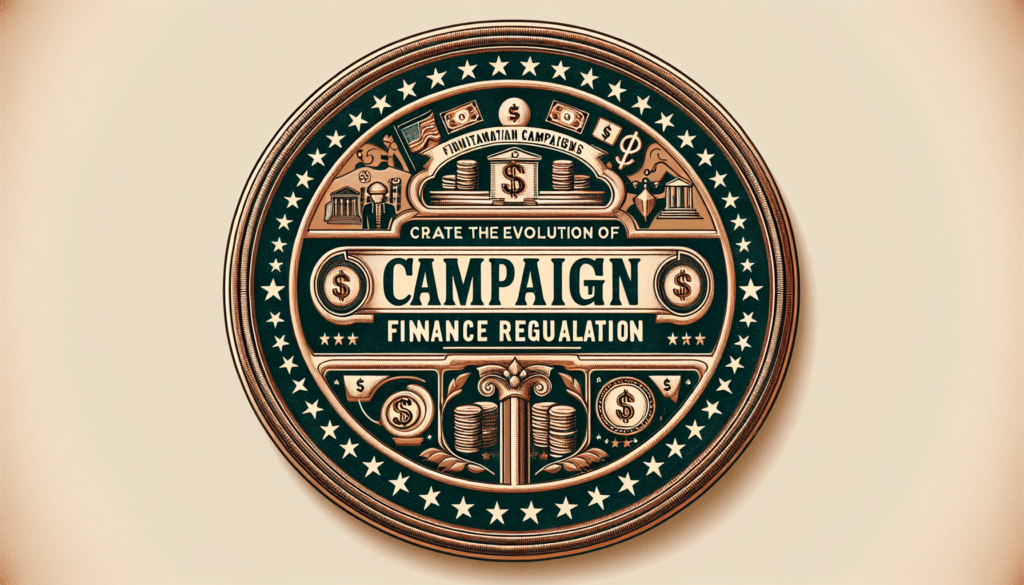What Is The History Of Campaign Finance Regulation In The United States?
Introduction
Campaign finance regulation in the United States has a long and complex history that continues to evolve. Understanding the origins and development of campaign finance laws is crucial to comprehending the current state of political financing in the country.
Campaign finance regulation refers to the laws that govern how money can be raised and spent in political campaigns. These regulations aim to ensure transparency, limit corruption, and promote fairness in the electoral process.
Early Regulations
The first federal campaign finance law in the United States was the Tillman Act of 1907, which prohibited corporations from making direct contributions to federal political campaigns. This was a response to concerns over the influence of corporate money in elections.
At the time, there were no limits on individual contributions to campaigns, and candidates were not required to disclose their campaign finances. This lack of transparency led to widespread corruption and the perception that politicians were being bought by special interests.
Conversational Subtitle: “Can you believe that originally there were no limits on individual contributions to political campaigns?”
It wasn’t until the Federal Corrupt Practices Act of 1925 that limits were imposed on individual campaign contributions. This law also required candidates to disclose their campaign finances, marking an important step towards greater transparency and accountability in the electoral process.

Watergate Scandal and Reforms
The Watergate scandal of the 1970s, which revealed widespread abuses of campaign finance laws by the Nixon administration, led to significant reforms in campaign finance regulation. In response to public outrage over the scandal, Congress passed the Federal Election Campaign Act (FECA) of 1971 and amended it in 1974.
Conversational Subtitle: “The Watergate scandal was a turning point in campaign finance regulation, leading to major reforms. Do you think similar scandals could occur today?”
The FECA established the Federal Election Commission (FEC) to enforce campaign finance laws and set limits on contributions to candidates and political parties. It also introduced public financing for presidential campaigns in an effort to reduce the influence of wealthy donors.
Buckley v. Valeo and Political Action Committees (PACs)
The Supreme Court case Buckley v. Valeo in 1976 struck down some provisions of the FECA, including limits on campaign spending by candidates and political parties. The Court ruled that spending money on political campaigns was a form of protected free speech under the First Amendment.
Conversational Subtitle: “Do you think that spending money on political campaigns should be considered a form of free speech?”
This decision paved the way for the rise of Political Action Committees (PACs), which can raise and spend unlimited amounts of money to support or oppose candidates. PACs have become a significant force in American politics, spending billions of dollars on political campaigns each year.

Bipartisan Campaign Reform Act (McCain-Feingold Act)
In response to concerns over the growing influence of money in politics, Congress passed the Bipartisan Campaign Reform Act (BCRA) in 2002, also known as the McCain-Feingold Act. The law sought to limit the role of big money in campaigns and reduce the influence of special interests.
Conversational Subtitle: “Do you think the McCain-Feingold Act has been successful in limiting the influence of money in politics?”
The BCRA banned national political parties from raising soft money, which are unlimited contributions from corporations, unions, and individuals that were often used for issue advocacy. It also restricted electioneering communications, which are ads that mention a candidate within a certain period before an election.
Citizens United v. FEC and Super PACs
The Supreme Court’s ruling in Citizens United v. Federal Election Commission in 2010 had a major impact on campaign finance regulation. The Court held that political spending is a form of protected speech under the First Amendment and struck down restrictions on independent political expenditures by corporations and unions.
Conversational Subtitle: “What do you think about the Supreme Court’s decision in Citizens United v. FEC?”
This decision led to the creation of Super PACs, which can raise and spend unlimited amounts of money to support or oppose candidates, as long as they do not coordinate with the candidates’ campaigns. Super PACs have since become a dominant force in elections, often funded by wealthy donors and corporations.
Current State of Campaign Finance Regulation
Today, campaign finance regulation in the United States is a patchwork of federal, state, and local laws that govern how money can be raised and spent in political campaigns. While federal laws set limits on contributions to candidates and political parties, there are loopholes that allow unlimited spending by outside groups.
Conversational Subtitle: “What changes would you like to see in campaign finance regulation to improve transparency and reduce the influence of money in politics?”
Recent Supreme Court decisions, such as Citizens United and McCutcheon v. FEC, have further weakened campaign finance regulations by expanding the rights of corporations and wealthy donors to spend money in elections. Critics argue that these decisions have eroded the integrity of the electoral process and given undue influence to moneyed interests.
Conclusion
The history of campaign finance regulation in the United States is a story of progress and setbacks, as policymakers have sought to balance the competing interests of free speech and fair elections. While reforms have been made to increase transparency and limit corruption, loopholes and court rulings have allowed big money to continue to play a significant role in politics.

Comments are closed